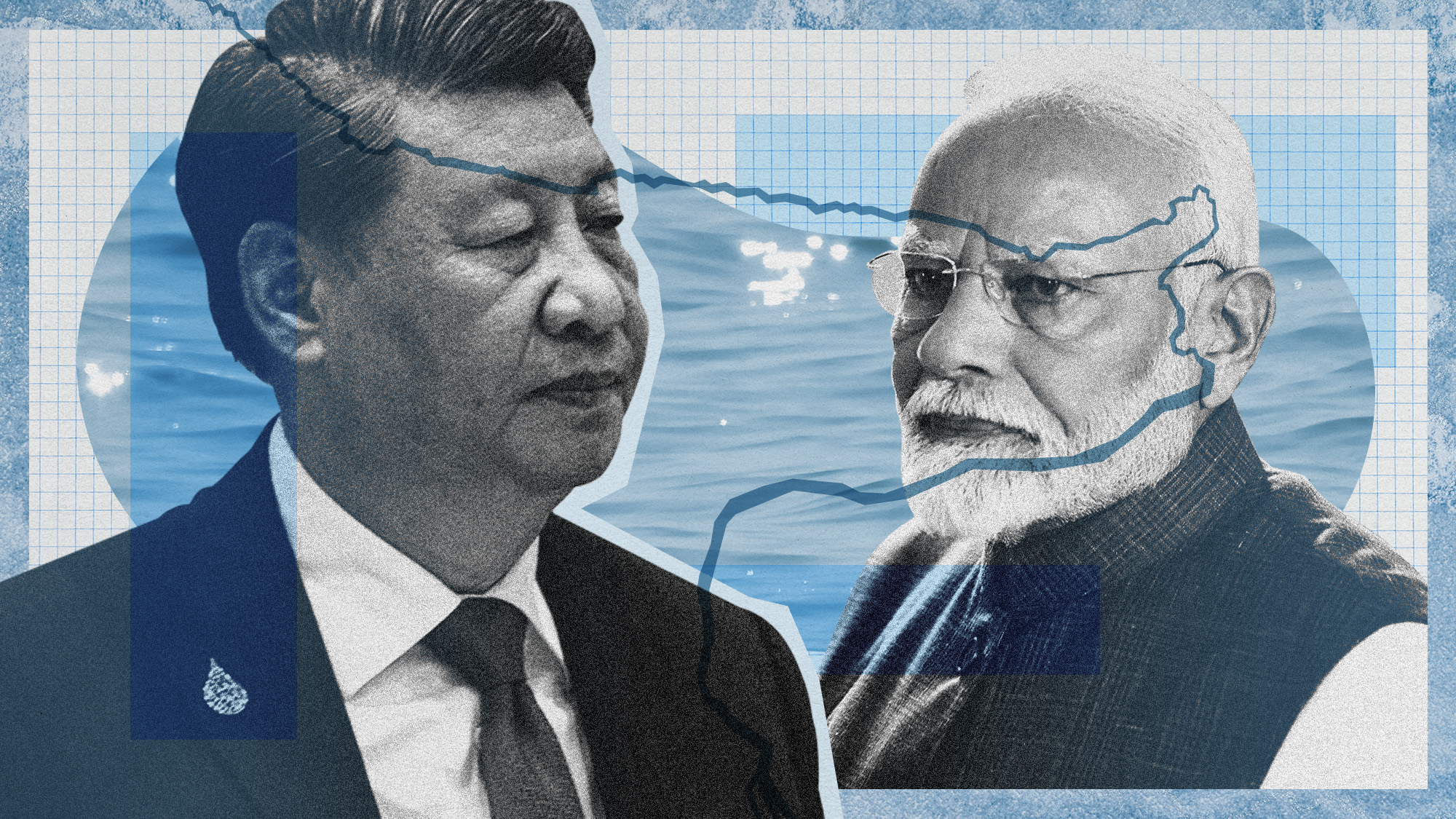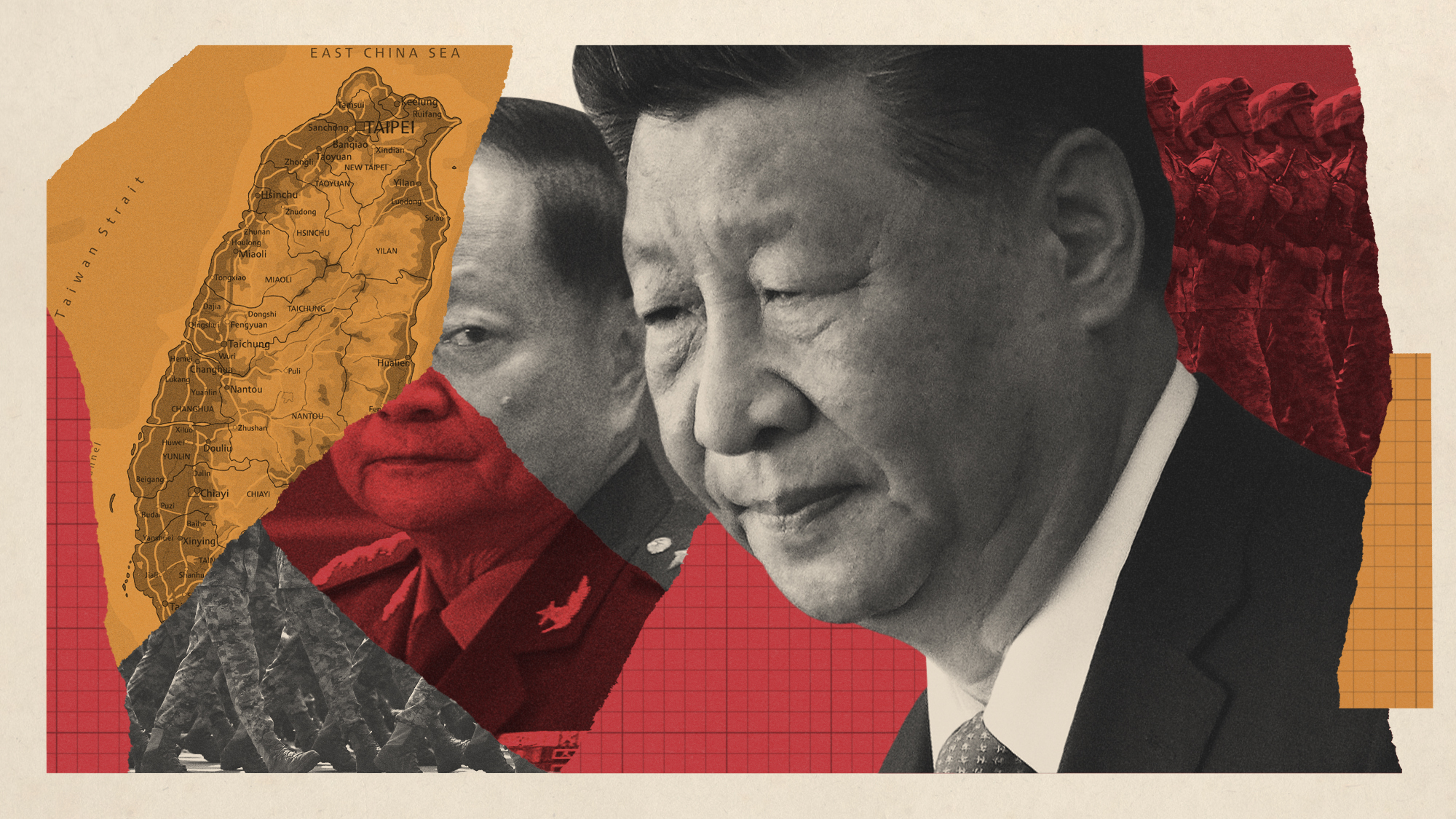China and India's dam war in the Himalayas
Delhi's response to Beijing's plans for a huge dam in Tibet? Build a huge dam of its own right nearby

A free daily email with the biggest news stories of the day – and the best features from TheWeek.com
You are now subscribed
Your newsletter sign-up was successful
India is building a giant hydropower dam near the Siang river to counter a huge Chinese dam further north.
But this latest move in a tit-for-tat saga of water geopolitics between the two nations is seen as a threat by the millions of people who live and work in the surrounding areas, or further downstream in Bangladesh.
'Dam for a dam'
India's $13.2 billion (£10.6 billion) Siang Upper Multipurpose Project will "create a reservoir that can hold nine billion cubic metres of water and generate 11,000 megawatts of electricity", said Al Jazeera.
The Week
Escape your echo chamber. Get the facts behind the news, plus analysis from multiple perspectives.

Sign up for The Week's Free Newsletters
From our morning news briefing to a weekly Good News Newsletter, get the best of The Week delivered directly to your inbox.
From our morning news briefing to a weekly Good News Newsletter, get the best of The Week delivered directly to your inbox.
And news of these construction plans comes a mere month after Beijing approved the building of its "most ambitious – and the world's largest –dam over the Yarlung Zangbo river, in Tibet's Medog county", just before it enters Indian territory (where it's known as the Siang river).
India says its dam will serve as a "buffer" in case of "excess and sudden water releases from dams in China", said The Diplomat, but Beijing has "downplayed" Delhi's concerns, insisting that detailed studies were carried out to make sure the new Chinese dam would "not have any negative effects on downstream countries".
For all this "dam for a dam" water war, relations between the two nations along their disputed Himalayan border are not currently at boiling point. In recent years, there have been skirmishes between Indian and Chinese troops in the area but 2024 "witnessed a thaw", with both sides "withdrawing troops from two flashpoints", said VOA News.
The troop withdrawals have set ties between New Delhi and Beijing "in the direction of some improvement", according to Subrahmanyan Jaishankar, India's foreign minister, but mutual mistrust "remains a key hurdle" to more friendly relations, said the US news site.
A free daily email with the biggest news stories of the day – and the best features from TheWeek.com
'Dangerous power tussle'
Either way, there's plenty of concern about India's plans in India itself. Locals in the Siang Upper Multipurpose Project area "have warned that at least 20 villages will be submerged" and two dozen more will be partly flooded, uprooting thousands of residents, said Al Jazeera
And, as a result of "this dangerous power tussle" over water resources, the "presence of two giant dams" in a region of the Himalayas that's prone to earthquakes "poses serious threats to millions of people" in India and Bangladesh.
Amid "intensifying resistance" from locals, the state government has sent in paramilitary forces – though there have not been any clashes yet.
The effects of climate change could "make these tensions" much more "dangerous and potentially destabilising in the upcoming decade", Michael Kugelman, South Asia Institute director at the Wilson Center, a US think tank, told Al Jazeera.
What's needed is a "comprehensive water-sharing agreement between China and India", said Rouhin Deb in The Indian Express, with the current "unilateral assurances" replaced by a "binding" formal framework.
Chas Newkey-Burden has been part of The Week Digital team for more than a decade and a journalist for 25 years, starting out on the irreverent football weekly 90 Minutes, before moving to lifestyle magazines Loaded and Attitude. He was a columnist for The Big Issue and landed a world exclusive with David Beckham that became the weekly magazine’s bestselling issue. He now writes regularly for The Guardian, The Telegraph, The Independent, Metro, FourFourTwo and the i new site. He is also the author of a number of non-fiction books.
-
 How the FCC’s ‘equal time’ rule works
How the FCC’s ‘equal time’ rule worksIn the Spotlight The law is at the heart of the Colbert-CBS conflict
-
 What is the endgame in the DHS shutdown?
What is the endgame in the DHS shutdown?Today’s Big Question Democrats want to rein in ICE’s immigration crackdown
-
 ‘Poor time management isn’t just an inconvenience’
‘Poor time management isn’t just an inconvenience’Instant Opinion Opinion, comment and editorials of the day
-
 The UK expands its Hong Kong visa scheme
The UK expands its Hong Kong visa schemeThe Explainer Around 26,000 additional arrivals expected in the UK as government widens eligibility in response to crackdown on rights in former colony
-
 ‘Hong Kong is stable because it has been muzzled’
‘Hong Kong is stable because it has been muzzled’Instant Opinion Opinion, comment and editorials of the day
-
 Vietnam’s ‘balancing act’ with the US, China and Europe
Vietnam’s ‘balancing act’ with the US, China and EuropeIn the Spotlight Despite decades of ‘steadily improving relations’, Hanoi is still ‘deeply suspicious’ of the US as it tries to ‘diversify’ its options
-
 What do Xi’s military purges mean for Taiwan?
What do Xi’s military purges mean for Taiwan?Today’s Big Question Analysts say China’s leader is still focused on reunification
-
 The ‘mad king’: has Trump finally lost it?
The ‘mad king’: has Trump finally lost it?Talking Point Rambling speeches, wind turbine obsession, and an ‘unhinged’ letter to Norway’s prime minister have caused concern whether the rest of his term is ‘sustainable’
-
 Does standing up to Trump help world leaders at home?
Does standing up to Trump help world leaders at home?Today’s Big Question Mark Carney’s approval ratings have ‘soared to new highs’ following his Davos speech but other world leaders may not benefit in the same way
-
 What is at stake for Starmer in China?
What is at stake for Starmer in China?Today’s Big Question The British PM will have to ‘play it tough’ to achieve ‘substantive’ outcomes, while China looks to draw Britain away from US influence
-
 Le Pen back in the dock: the trial that’s shaking France
Le Pen back in the dock: the trial that’s shaking FranceIn the Spotlight Appealing her four-year conviction for embezzlement, the Rassemblement National leader faces an uncertain political future, whatever the result